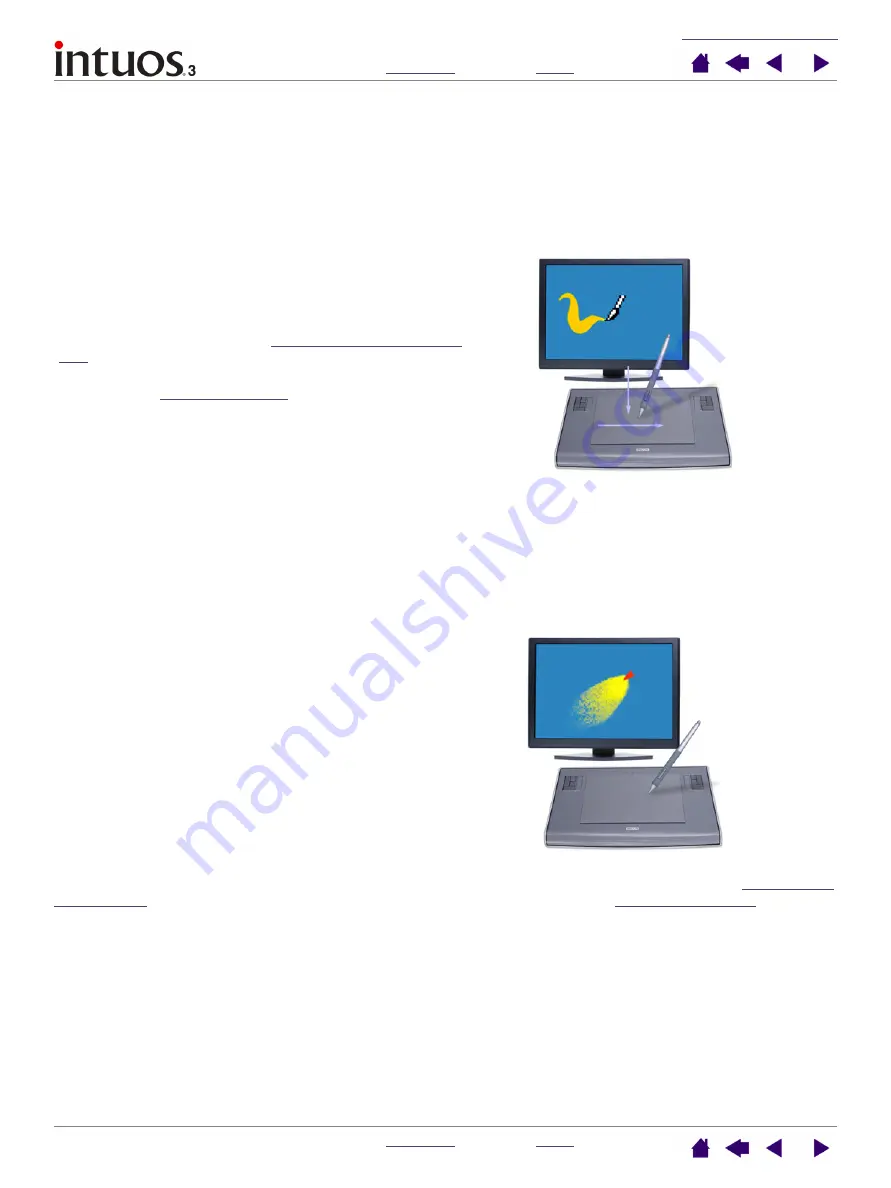
16
16
Drawing with pressure-sensitivity
The Intuos3 pen responds to the nuance and inflection of your hand movements, enabling you to create
natural-looking pen and brush strokes. Many graphics applications have drawing tools that respond to the
pressure you place on the pen. For example, in some drawing programs sliders are used to vary brush
characteristics (width, color, and opacity). These characteristics can be controlled much better by the pen’s
pressure-sensitivity – you can vary line width, blend colors, and change opacity with the pressure you exert
upon the pen.
Drawing with tilt
As with pressure-sensitivity, the tablet recognizes when you tilt the pen from vertical to inclined positions.
In some drawing applications, tilt can be used to control line shape and thickness. This is like working with
an airbrush where tilt can be used to make a line thin when the tool is vertical, or wide when the tool is tilted.
In other applications, you can adjust tilt to define brush characteristics such as width, color and opacity.
To adjust the amount of pen tilt required to produce a desired tilt effect in your application, see
. Visit our web site for a list of applications that support tilt. See
.
To draw with pressure-sensitivity, first select a pressure-
sensitive tool from your application’s tool palette. Then draw
along the surface of the tablet while applying various amounts
of pressure downward on the tip of the pen. Press hard for
thick lines or dense color. Press gently for thin lines or softer
color. To adjust the tip feel, see
adjusting tip feel and double-
Visit our web site for a list of graphics applications that support
pressure. See
.
To test tilt, draw a curve in a graphics application (such as
Painter) that supports tilt. Be sure that the tilt function in
your application is active, then change the tilt of the pen as
you draw to vary the shape and thickness of the brush
stroke.
As an example, when the brush shape dynamics in
Photoshop have been configured for tilt operation, tilting
the pen results in an elongated pattern. This simulates
the effects of an airbrush spray that is angled away from
the paint surface.
















































